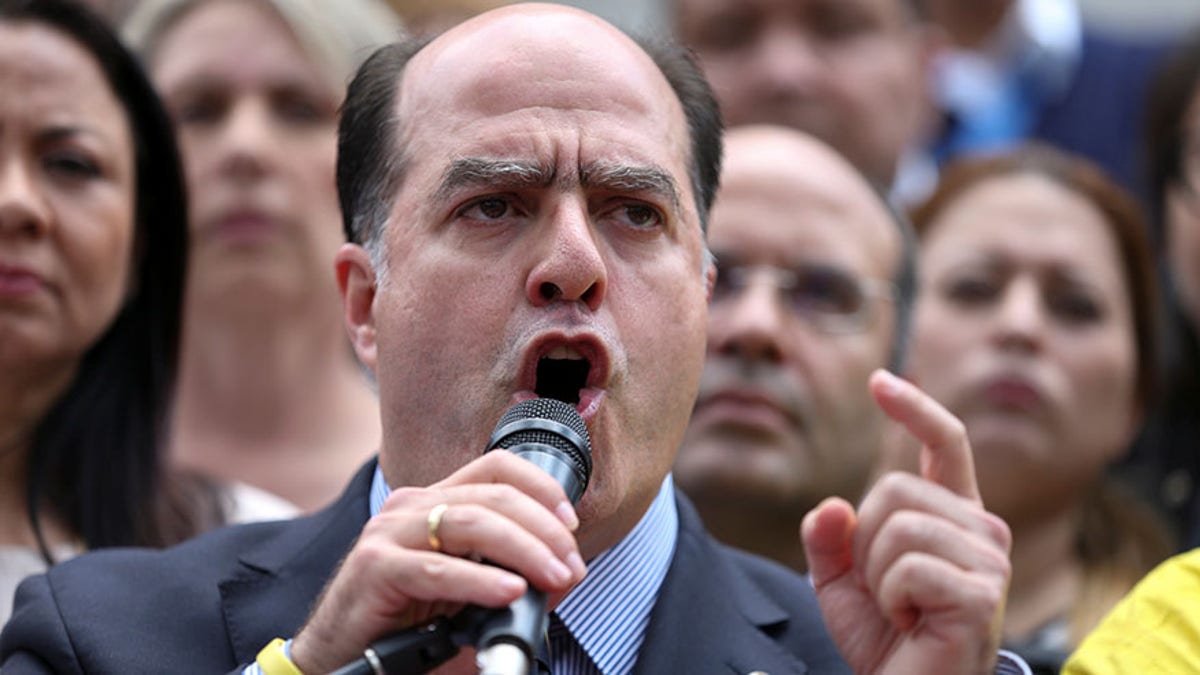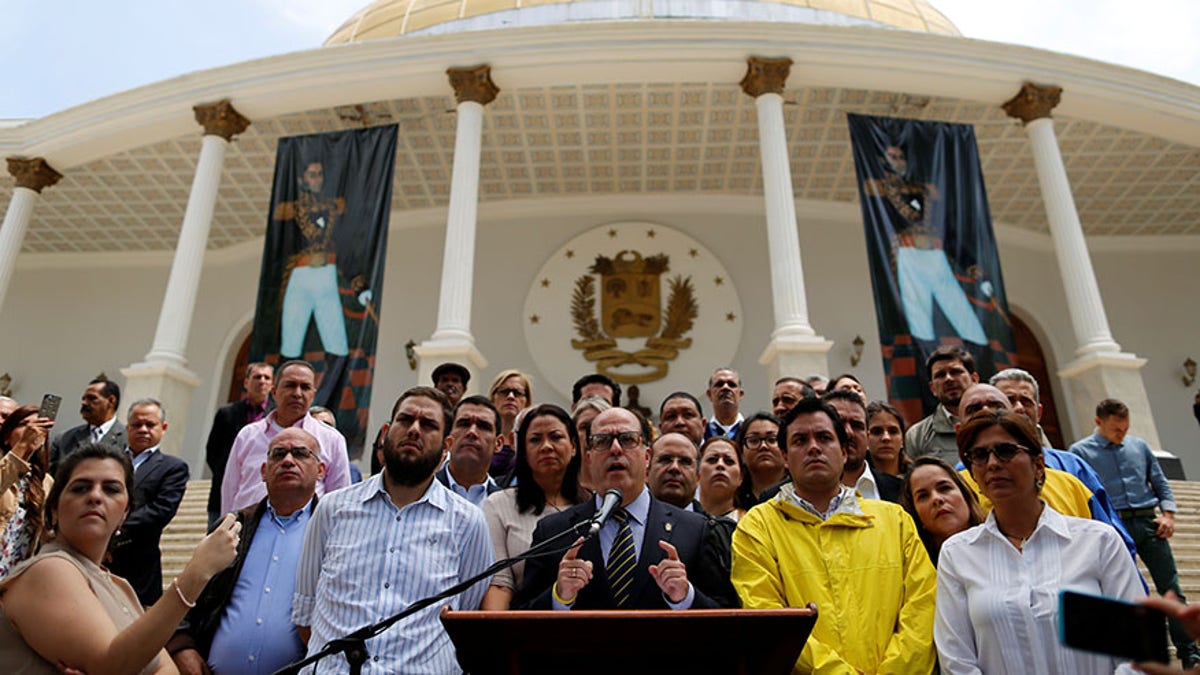
Julio Borges, President of the National Assembly and deputy of the Venezuelan coalition of opposition parties (MUD), speaks during a news conference in Caracas, Venezuela, March 30, 2017. (Reuters)
Members of the opposition in Venezuela say the Supreme Court ruling taking control over legislative powers for being “in contempt” is a coup d’etat and is openly calling on the military to take action.
"We have to call on the National Armed Forces (FAN), they cannot remain silent, they cannot remain silent in the face of the violation of the Constitution," said Congress President Julio Borges as quoted by El Nacional, an independent daily newspaper in Venezuela.
"We know that FAN officers are also going through drama caused by the high cost of life. We want to make a call on them to be the first guardians of democracy and the Venezuelan Constitution and that they become part of the solution," Borges said in a press conference.
In what is being called a point of no return, Wednesday night’s ruling effectively shuts down the opposition-controlled Congress or National Assembly, as it is called in the South American country.

Borges announced a national protest this weekend and urged Venezuelans to raise their voice. (Reuters)
VENEZUELA DETAINS OIL COMPANY OFFICIAL IN CORRUPTION CASE
"As long as the National Assembly's contempt of court and invalidity persist, parliamentary powers shall be exercised directly by (the Supreme Court's) constitutional chamber or by the body it stipulates to safeguard the rule of law," the high court said in the ruling.
The government-stacked Supreme Court argues that the Congress is in contempt of court for swearing in three – opposition – lawmakers from the state of Amazonas who have been accused of electoral fraud.
The court said it will take over all “parliamentary capacities” until the conflict is resolved.
Borges also called on the international community to “sound the alarms” and help pressure the socialist government of Nicolas Maduro to respect the Constitution and call for elections.
VENEZUELANS KILLING FLAMINGOS AND ANTEATERS TO STAVE OFF HUNGER
"This is a dictatorship and the world has to help Venezuelans to sound all the alarms,” Borges said.
“We need the solidarity of all countries to continue the pressure (…) to carry out this year, as it is mandated by law and by the Constitution, elections for governors, mayors and also a general election," he said.
Borges announced a national protest this weekend and urged Venezuelans to raise their voice.
"We know there is fear, there is repression, but it is time to stand up," he said at a press conference.
Assembly’s Vice President Freddy Guevara said earlier the ruling “marks a point of no return for the dictatorship.” Many are comparing it with the so-called “Fujimorazo” of April 1992, when Peruvian President Alberto Fujimori shut down Congress.
“It is no longer just a question of annulling everything that the National Assembly does,” Guevara said, “but of usurping all its powers, allowing them to approve new ‘sentencing laws’ that give more power to the dictator to continue hurting the people.”
Maduro has jailed scores of opponents and ridden roughshod over lawmakers' powers ever since the opposition swept congressional elections by a landslide in 2015 and immediately set out to remove the socialist leader from office through a recall referendum. The high court a year ago issued an order automatically nullifying all legislation coming out of Congress, and earlier this week it moved to limit lawmakers' immunity from prosecution.
But foreign governments are increasingly decrying the shift toward authoritarian, one-party rule. Earlier this week, diplomats from the hemisphere gathered at the Organization of American States in Washington to debate whether to punish Maduro for breaking the democratic order and rule of law.
The AP contributed to this report.








































